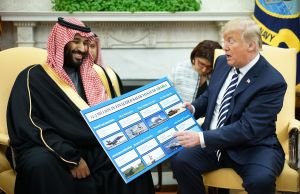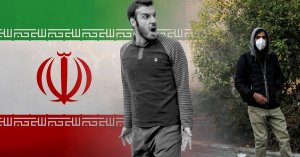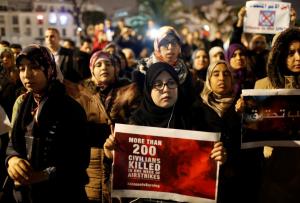cross-posted from Oakland Socialist

The following is an open letter to the US “peace group” Code Pink. At a time of widespread confusion in the working class around the world, and a time of increased war, what’s needed more than anything is international working class solidarity. That is why we think the issue dealt with in this letter is important. If you as an individual or as a group want to add your name to this letter, please let us know. We think this letter will end up being translated into Farsi and distributed in Iran also. For those who are interested in reading further on this massive confusion on the left, see this article.
Open Letter to Code Pink
December 1, 2018
Dear Code Pink:
You have recently announced that you will be organizing a trip to Iran. You state the purpose is to help “move our two nations from a place of hostility and military threats to a place of mutual respect and peace with one another.”
As socialists, and as supporters of the international working class, we, of course oppose any aggression – economic, political or military – by US capitalism against Iran or any other country. This includes opposing all US government economic and political sanctions against Iran as well, of course, as opposing any potential US military attack. However, we also do not think that the issue is simply a matter of lack of “mutual respect” between this aggressive and repressive US government and, we have to say it, the smaller and less powerful but also aggressive and repressive capitalist government of Iran.


 In 2011, people in the eastern Ghouta (and throughout Syria) protested for freedom, dignity and social justice. The Assad regime replied with gunfire, mass arrests, torture and rape. The people formed self-defence militias in response. Then the regime escalated harder, deploying artillery and warplanes against densely-packed neighbourhoods. In August 2013 it choked over a thousand people to death with sarin gas. Since then the area has been besieged so tightly that infants and the elderly die of malnutrition.
In 2011, people in the eastern Ghouta (and throughout Syria) protested for freedom, dignity and social justice. The Assad regime replied with gunfire, mass arrests, torture and rape. The people formed self-defence militias in response. Then the regime escalated harder, deploying artillery and warplanes against densely-packed neighbourhoods. In August 2013 it choked over a thousand people to death with sarin gas. Since then the area has been besieged so tightly that infants and the elderly die of malnutrition. Toxic effusions and formulaic pronouncements abound in response to the protests in Iran, from the
Toxic effusions and formulaic pronouncements abound in response to the protests in Iran, from the  A slightly edited version of this article was
A slightly edited version of this article was 
 I have an essay in the new issue of
I have an essay in the new issue of 

 The excellent Books pages at
The excellent Books pages at